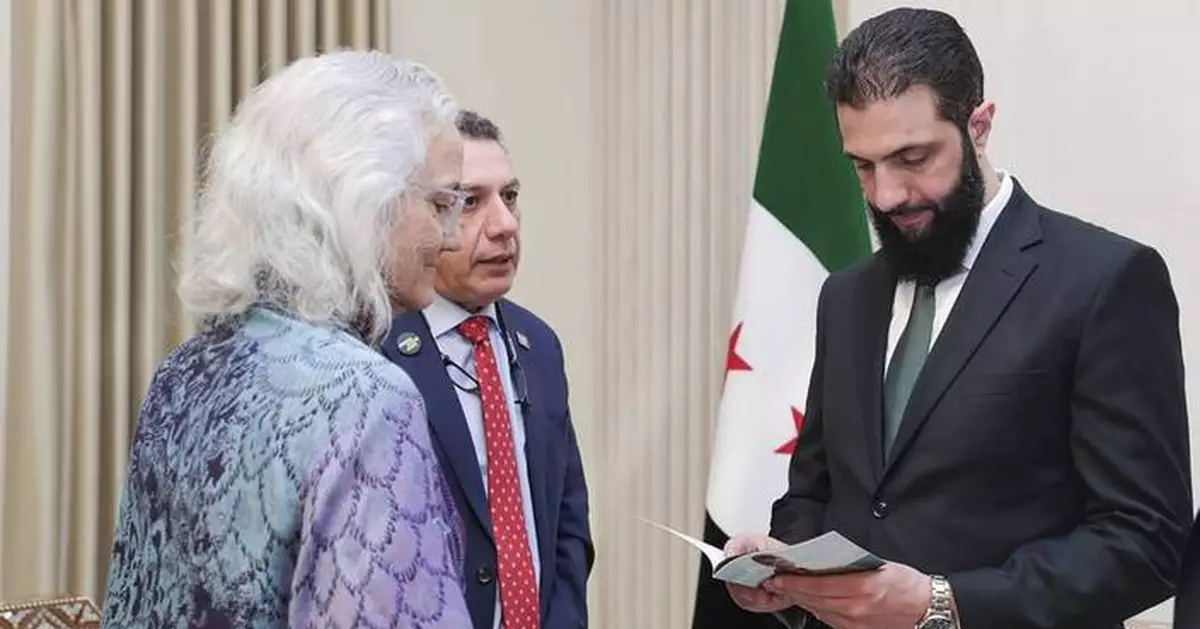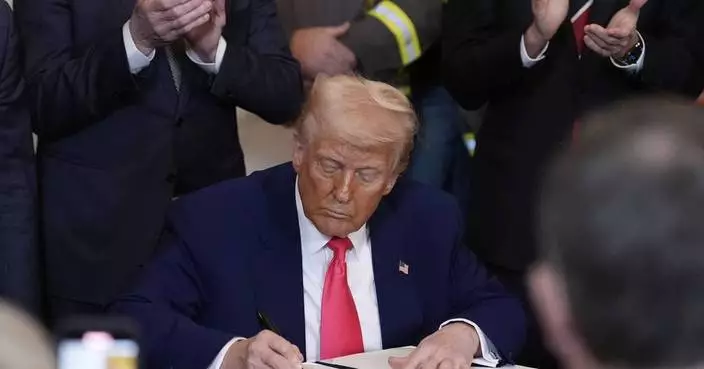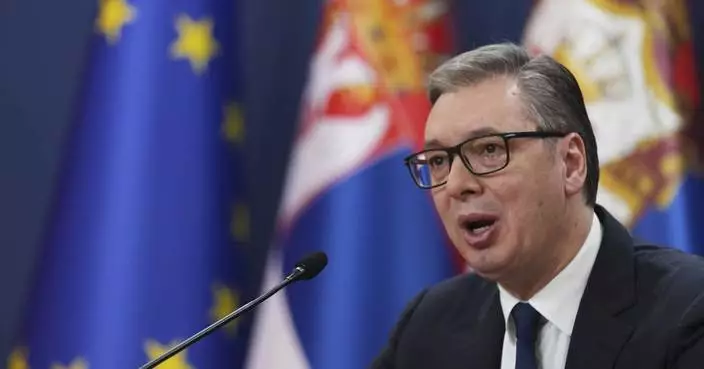DAMASCUS, Syria (AP) — The mother of American journalist Austin Tice said Monday that the Trump administration had offered support to help find her son, who disappeared in Syria in 2012.
Debra Tice made the remarks at a news conference in Damascus on her first visit to the country since insurgents toppled President Bashar Assad last month. She did not present any new findings in the ongoing search.
Click to Gallery
Debra Tice, the mother of American journalist Austin Tice, who went missing in Syria in 2012, left, and Nizar Zakka, head of non-profit Hostage Aid Worldwide, right, arrive to a joint press conference in Damascus, Syria, Monday, Jan. 20, 2025. (AP Photo/Omar Sanadiki)
In this photo released by Syrian state news agency SANA, Syria's de facto leader Ahmad al-Sharaa, right, meets with Debra Tice, the mother of American journalist Austin Tice, who went missing in Syria in 2012, left, and Nizar Zakka, head of non-profit Hostage Aid Worldwide, center, in Damascus, Syria, Monday, Jan. 20, 2025. (SANA via AP)
In this photo released by Syrian state news agency SANA, Syria's de facto leader Ahmad al-Sharaa, right, meets with Debra Tice, the mother of American journalist Austin Tice, who went missing in Syria in 2012, left, and Nizar Zakka, head of non-profit Hostage Aid Worldwide, center, in Damascus, Syria, Monday, Jan. 20, 2025. (SANA via AP)
+2
In this photo released by Syrian state news agency SANA, Syria's de facto leader Ahmad al-Sharaa, right, meets with Debra Tice, the mother of American journalist Austin Tice, who went missing in Syria in 2012, left, and Nizar Zakka, head of non-profit Hostage Aid Worldwide, center, in Damascus, Syria, Monday, Jan. 20, 2025. (SANA via AP)
Debra Tice, the mother of American journalist Austin Tice, who went missing in Syria in 2012, left, and Nizar Zakka, head of non-profit Hostage Aid Worldwide, right, arrive to a joint press conference in Damascus, Syria, Monday, Jan. 20, 2025. (AP Photo/Omar Sanadiki)
Debra Tice, the mother of American journalist Austin Tice, who went missing in Syria in 2012, speaks during a press conference in Damascus, Syria, Monday, Jan. 20, 2025. (AP Photo/Omar Sanadiki)
Debra Tice, the mother of American journalist Austin Tice, who went missing in Syria in 2012, holds a card with a picture of her son during a press conference in Damascus, Syria, Monday, Jan. 20, 2025. (AP Photo/Omar Sanadiki)
In this photo released by Syrian state news agency SANA, Syria's de facto leader Ahmad al-Sharaa, right, meets with Debra Tice, the mother of American journalist Austin Tice, who went missing in Syria in 2012, left, and Nizar Zakka, head of non-profit Hostage Aid Worldwide, center, in Damascus, Syria, Monday, Jan. 20, 2025. (SANA via AP)
In this photo released by Syrian state news agency SANA, Syria's de facto leader Ahmad al-Sharaa, right, meets with Debra Tice, the mother of American journalist Austin Tice, who went missing in Syria in 2012, left, and Nizar Zakka, head of non-profit Hostage Aid Worldwide, center, in Damascus, Syria, Monday, Jan. 20, 2025. (SANA via AP)
In this photo released by Syrian state news agency SANA, Syria's de facto leader Ahmad al-Sharaa, right, meets with Debra Tice, the mother of American journalist Austin Tice, who went missing in Syria in 2012, left, and Nizar Zakka, head of non-profit Hostage Aid Worldwide, center, in Damascus, Syria, Monday, Jan. 20, 2025. (SANA via AP)
Austin Tice has not been heard from other than a video released weeks after his disappearance that showed him blindfolded and held by armed men. Tens of thousands are believed to have gone missing in Syria since 2011, when countrywide protests against Assad spiraled into a devastating civil war.
Then-President Joe Biden said in December that he believes Washington can bring Tice back, while admitting that “we have no direct evidence” of his well-being.
“I have great hope that the Trump administration will sincerely engage in diligent work to bring Austin home," Debra Tice said. “His people have already reached out to me. I haven’t experienced that for the last four years.”
Syria's former government had publicly denied that it was holding him, but Tice hopes she will find him with the help of the new leadership. In December, she said the family had information from an unidentified source that her son was alive and well. She said Monday she still believes he is alive and in good health.
“Austin, if you can somehow hear this, I love you. I know you’re not giving up, and neither am I,” she said.
Tice said she had a productive meeting with Ahmad al-Sharaa, the leader of Syria’s new administration, who she said was “dedicated and determined” to bring back Austin and the others missing in the country.
She also visited two military intelligence prisons in Syria, known for their mass incarceration and systematic use of torture, which she described as an “unbelievably, horrible nightmare.”
Tice, who is from Houston, has had his work published by The Washington Post, McClatchy newspapers and other outlets.
Chehayeb reported from Beirut.
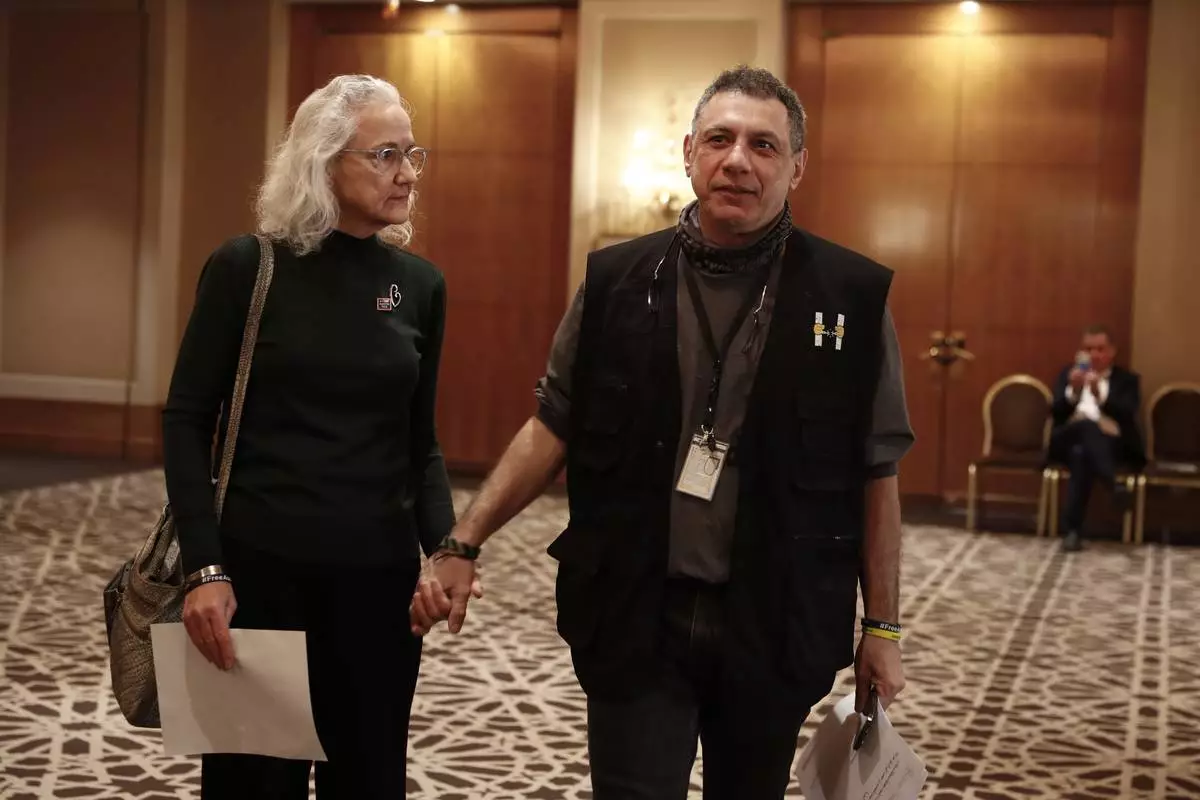
Debra Tice, the mother of American journalist Austin Tice, who went missing in Syria in 2012, left, and Nizar Zakka, head of non-profit Hostage Aid Worldwide, right, arrive to a joint press conference in Damascus, Syria, Monday, Jan. 20, 2025. (AP Photo/Omar Sanadiki)
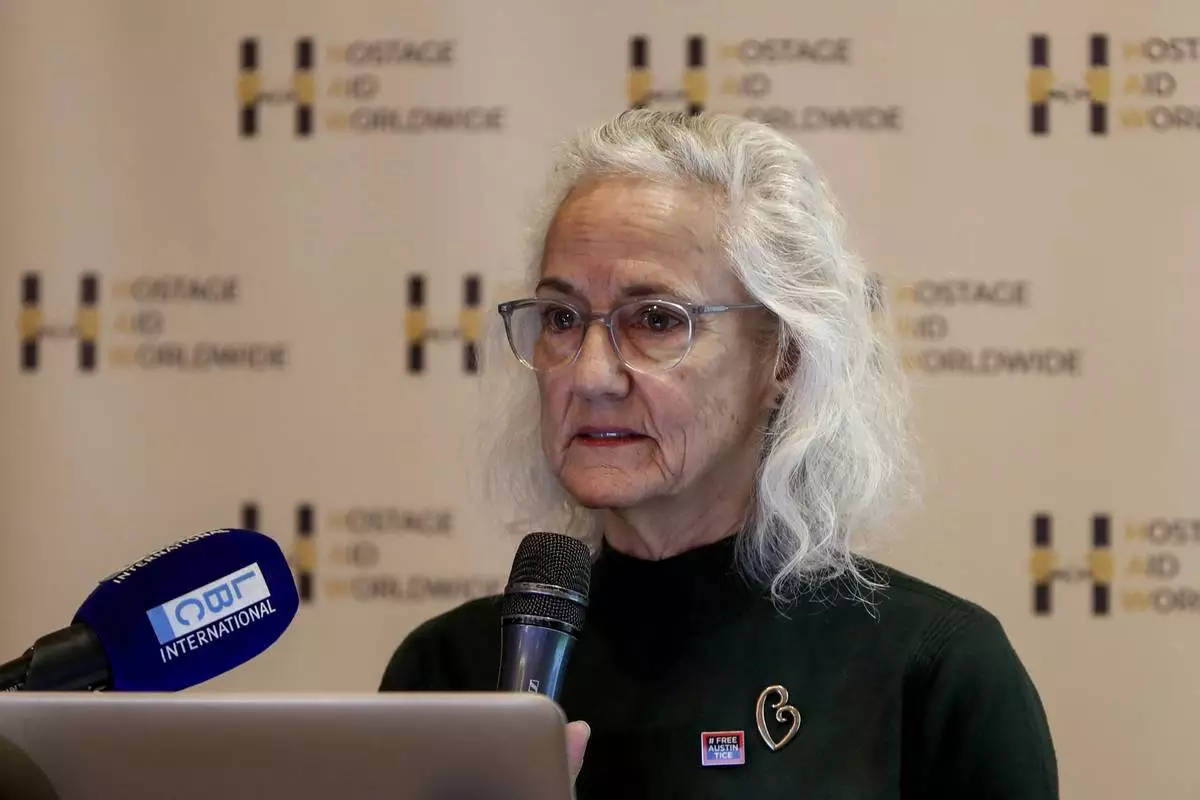
Debra Tice, the mother of American journalist Austin Tice, who went missing in Syria in 2012, speaks during a press conference in Damascus, Syria, Monday, Jan. 20, 2025. (AP Photo/Omar Sanadiki)
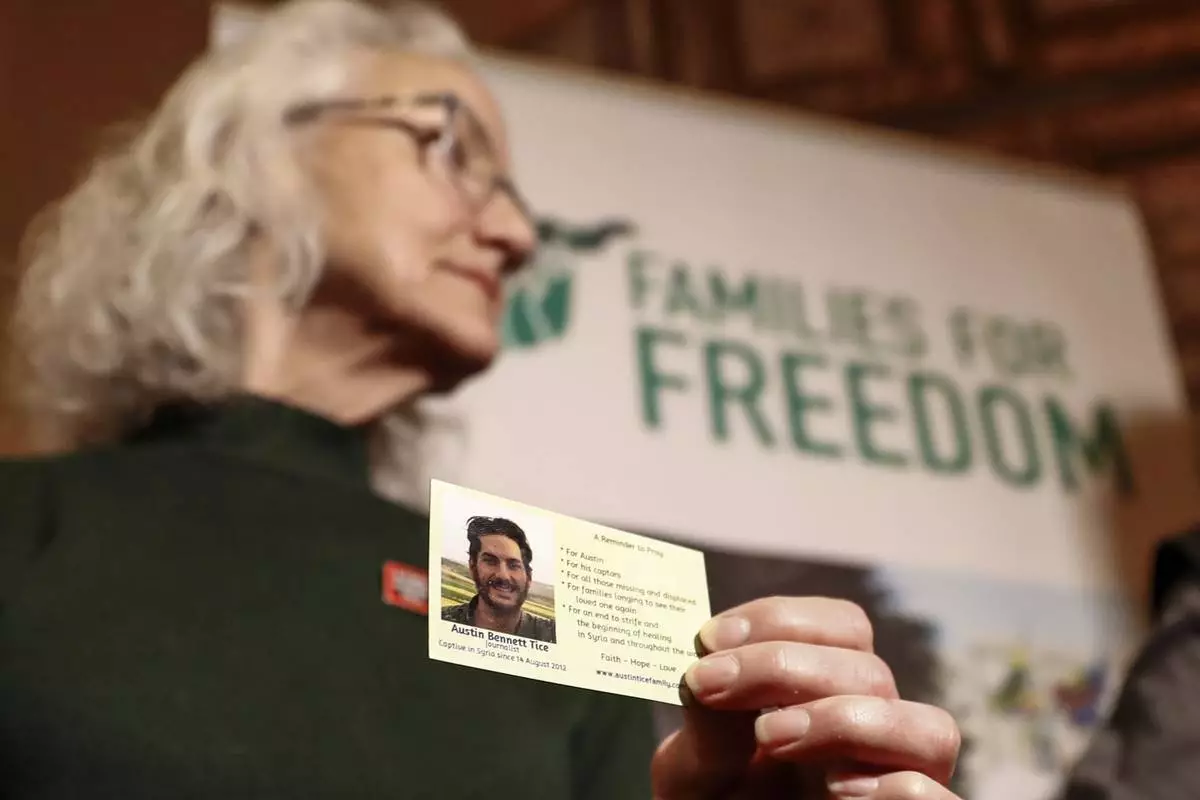
Debra Tice, the mother of American journalist Austin Tice, who went missing in Syria in 2012, holds a card with a picture of her son during a press conference in Damascus, Syria, Monday, Jan. 20, 2025. (AP Photo/Omar Sanadiki)
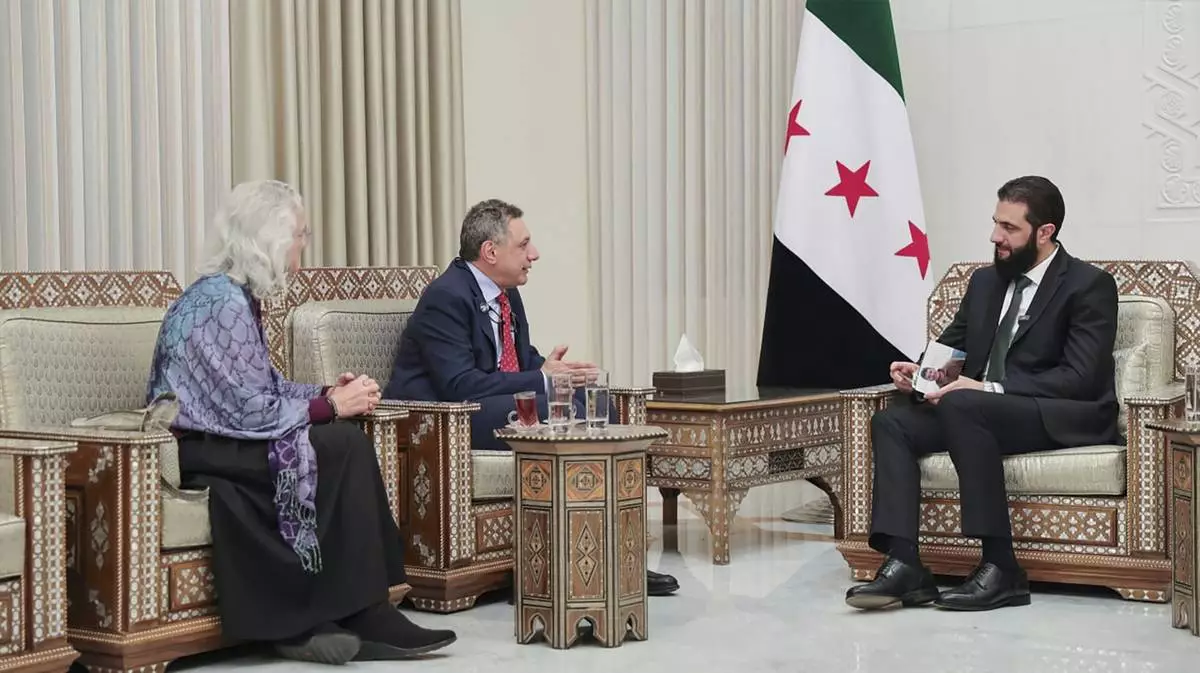
In this photo released by Syrian state news agency SANA, Syria's de facto leader Ahmad al-Sharaa, right, meets with Debra Tice, the mother of American journalist Austin Tice, who went missing in Syria in 2012, left, and Nizar Zakka, head of non-profit Hostage Aid Worldwide, center, in Damascus, Syria, Monday, Jan. 20, 2025. (SANA via AP)
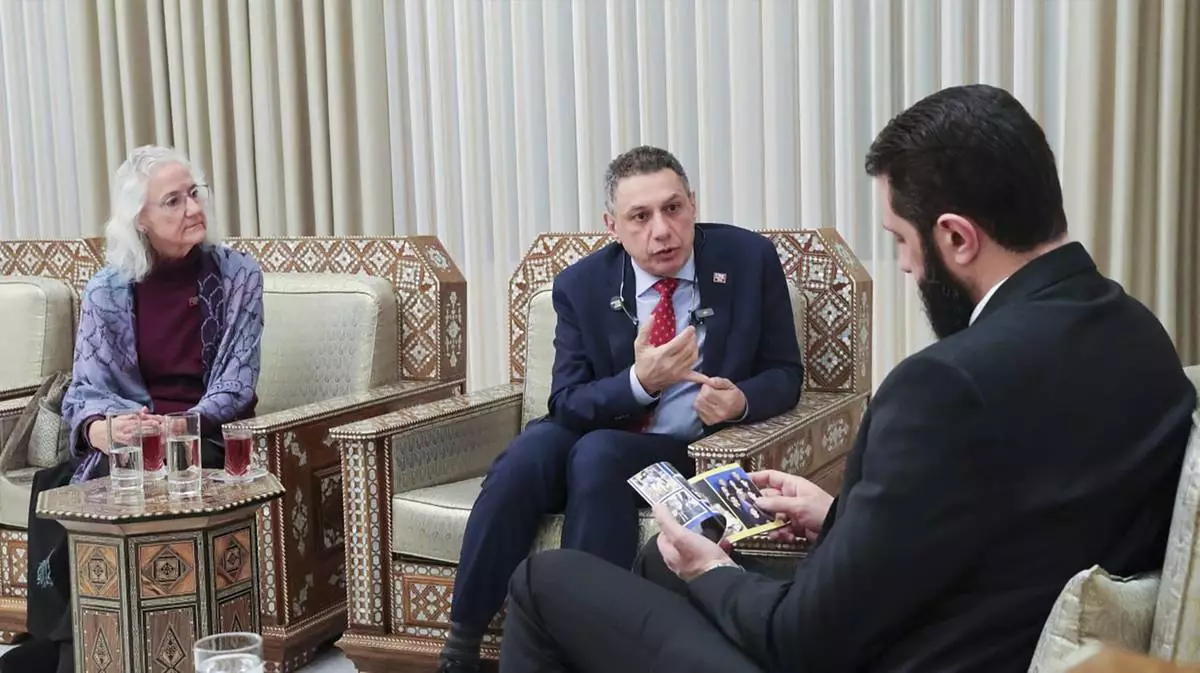
In this photo released by Syrian state news agency SANA, Syria's de facto leader Ahmad al-Sharaa, right, meets with Debra Tice, the mother of American journalist Austin Tice, who went missing in Syria in 2012, left, and Nizar Zakka, head of non-profit Hostage Aid Worldwide, center, in Damascus, Syria, Monday, Jan. 20, 2025. (SANA via AP)
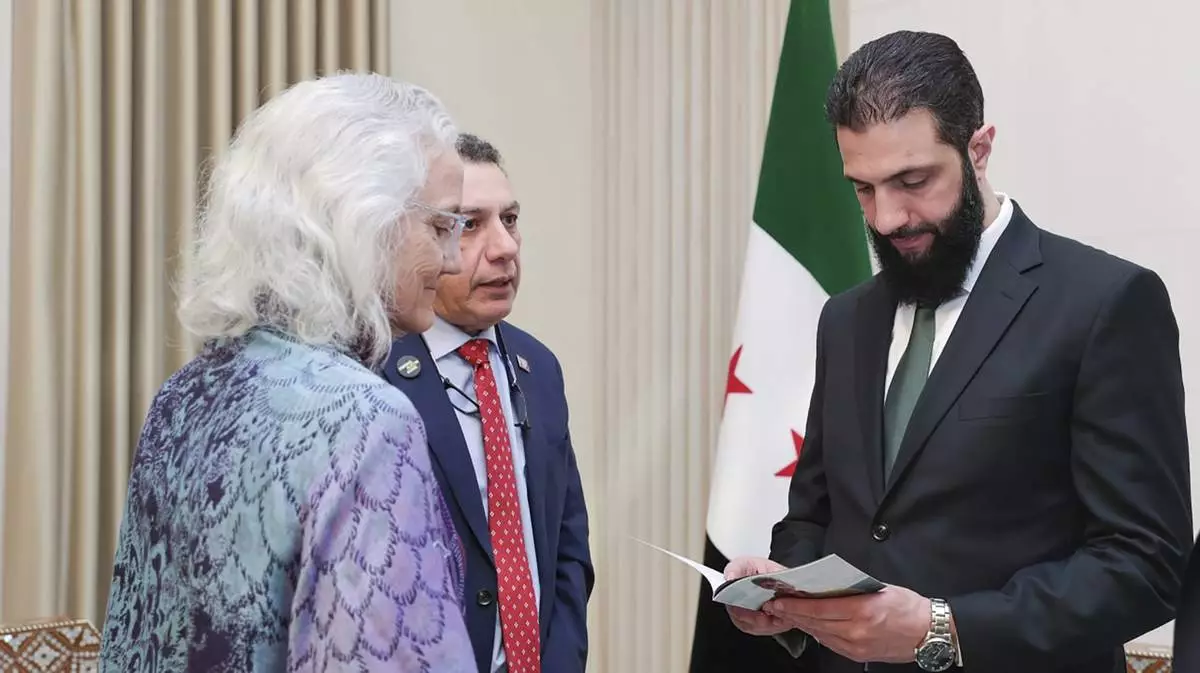
In this photo released by Syrian state news agency SANA, Syria's de facto leader Ahmad al-Sharaa, right, meets with Debra Tice, the mother of American journalist Austin Tice, who went missing in Syria in 2012, left, and Nizar Zakka, head of non-profit Hostage Aid Worldwide, center, in Damascus, Syria, Monday, Jan. 20, 2025. (SANA via AP)
SAO PAULO (AP) — Brazil will prioritize trade negotiations with the United States to address the tariffs imposed by President Donald Trump as it is continues to expand commercial agreements with other countries as a way to offset the impact, a top foreign trade official said Thursday.
“The guidance from the minister and Vice President (Geraldo Alckmin) is to negotiate, negotiate, negotiate,” Foreign Trade Secretary Tatiana Prazeres said at an online event hosted by the Brazil-China Business Council. “We have an open dialogue with U.S. authorities."
Brazilian imports to the United States have faced a 10% tariff since last week. Steel, one of Brazil’s key exports to the U.S., has been subject to a 25% tariff since March.
The United States is Brazil’s second-largest trading partner, behind China. In 2024, the U.S. trade surplus with Brazil reached $28.6 billion in goods and services.
President Luiz Inácio Lula da Silva has said publicly that Brazil doesn’t rule out retaliation but remains committed to dialogue with the U.S.
Brazilian officials from the Foreign Ministry and the Ministry of Industry and Development have held meetings with the Trump administration for over five weeks, according to a top official who spoke to The Associated Press on condition of anonymity because they were not authorized to speak publicly.
Talks began after the U.S. imposed the 25% tariff on Brazilian steel. Brazil has argued that it is a key supplier of semi-finished steel to the U.S., underscoring the integrated nature of the trade: for example, the same ships that bring U.S. coal to Brazil return carrying semi-finished steel, critical to the American industry. Brazilian officials have also warned that penalizing Brazil could strengthen Asian competitors, particularly those backed by China.
When the 10% tariff was announced on April 2, Brazilian officials felt a certain relief, as they believed the weeks-long negotiations may have helped avoid a worst-case scenario of higher tariffs.
Still, the extra taxes have raised concern and uncertainty.
Brazil’s top exports to the U.S. include crude oil, aircraft, coffee, cellulose and beef. Orange juice exports are also expected to be significantly affected, as the U.S. accounts for the majority of the exports.
Prazeres said Thursday the U.S. trade war could bring some opportunities. “In the past, during the first version of the trade war, we saw an increase in Brazil’s soybean exports to China. But that’s not the scenario we hope for, because the risks are very significant,” she said.
Brazilian authorities are also tracking the potential impact of a surge in Asian exports that are no longer reaching the U.S. market. “We are monitoring significant, atypical changes in trade flows,” Prazeres added.
While continuing talks with the U.S., Brazil is also working to expand its trade agreements with other countries and blocs. Prazeres highlighted recent deals signed between the Mercosur bloc and Singapore in 2023, and the European Union in 2024. The EU agreement has yet to be ratified by member countries in both regions.
Last week, VP Alckmin said the trade tensions triggered by Trump’s tariffs could help accelerate the conclusion of the Mercosur–European Union agreement.
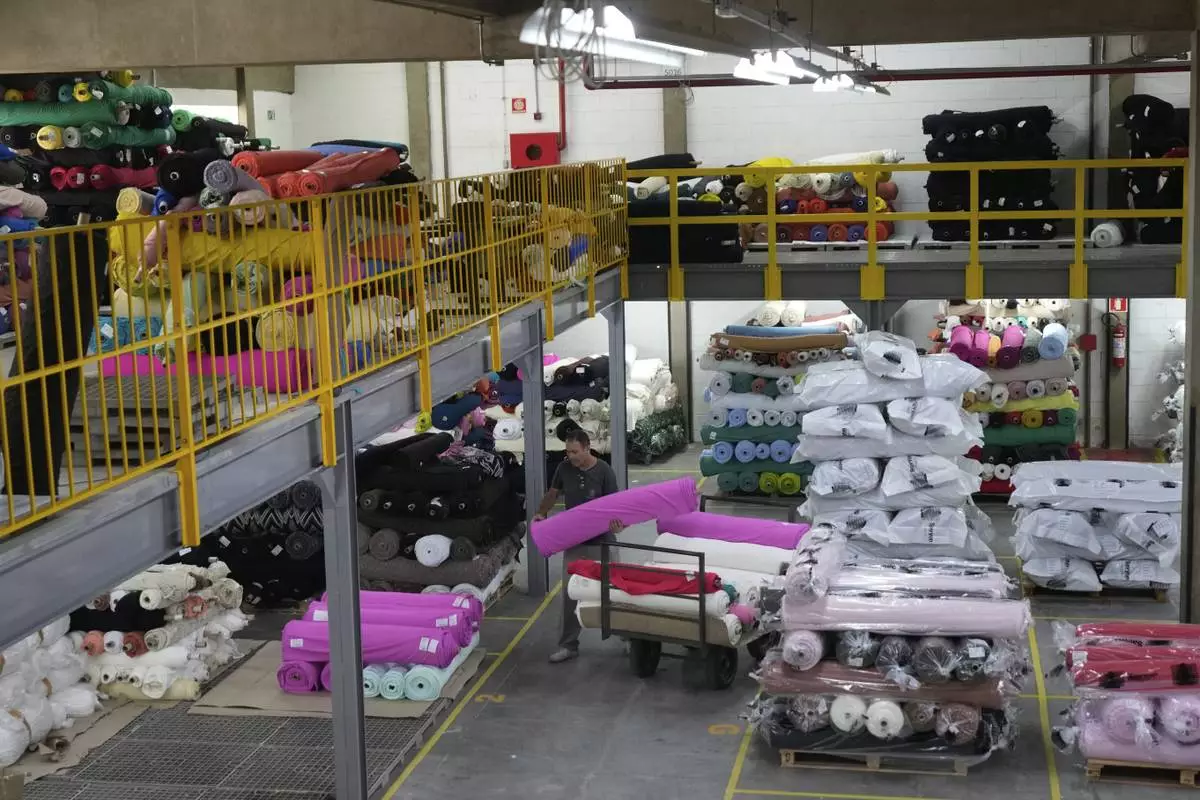
A worker organizes fabric at a textile manufacturer in Sao Paulo, Wednesday, April 9, 2025. (AP Photo/Andre Penner)








